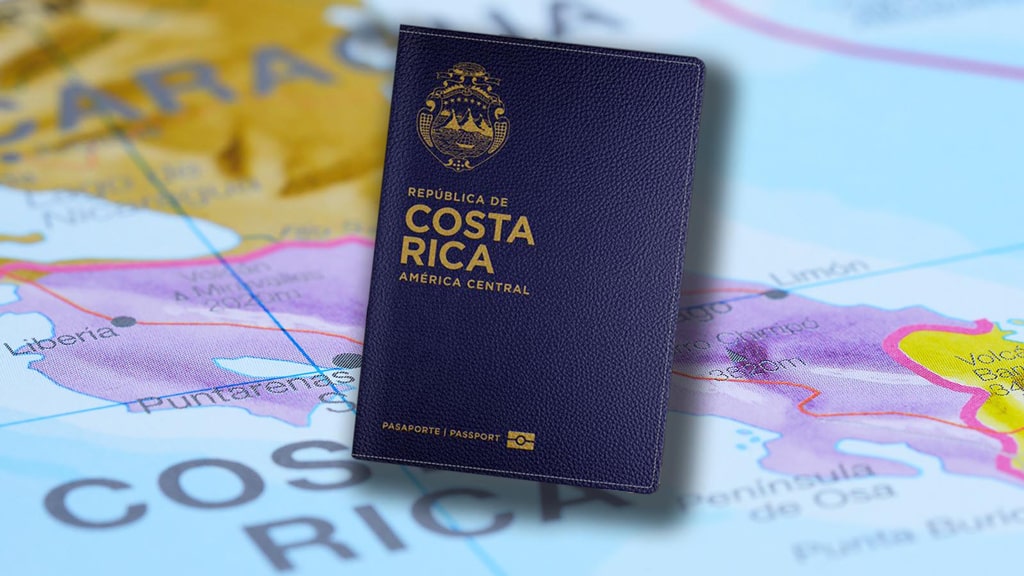Costa Rica’s Visa Options and Residency Programs

Costa Rica, with its stunning landscapes, vibrant culture, and welcoming locals, has become a favored destination for tourists and expats alike. Whether you’re drawn by the lush rainforests, pristine beaches, or the promise of a peaceful life, understanding Costa Rica’s visa options and residency programs is crucial. Let’s dive into the details of what you need to know to make Costa Rica your new home.
Understanding Costa Rica’s Visa Options
Types of Visas
Tourist Visa
Costa Rica offers a tourist visa that allows visitors to stay for up to 90 days. This visa is perfect for those looking to explore the country’s natural beauty and vibrant cities. If you fall in love with the place and want to extend your stay, you can apply for an extension, though it’s essential to note that this doesn’t permit you to work.
Business Visa
For those planning to engage in business activities, Costa Rica provides a business visa. This visa requires proof of your business intentions and typically includes documentation like a business plan and proof of funds. It’s a great option for entrepreneurs and business travelers.
Student Visa
Students looking to study in Costa Rica can apply for a student visa. This visa requires proof of enrollment in a recognized educational institution and sufficient funds to support your stay. It allows students to focus on their studies and enjoy the unique educational opportunities Costa Rica offers.
Work Visa
Obtaining a work visa in Costa Rica involves securing a job offer from a local employer who will then sponsor your application. This visa requires proof of employment and other supporting documents. It’s ideal for those who have secured employment and are ready to contribute to the local economy.
Residency Programs in Costa Rica
Types of Residency Programs
Pensionado Program
The Pensionado Program is designed for retirees. To qualify, you must prove a stable income from a pension or retirement fund, typically a minimum of $1,000 per month. This program offers numerous benefits, including discounts on various services and the ability to import household goods tax-free.
Rentista Program
For those who don’t have a pension but can demonstrate a stable income, the Rentista Program is a viable option. Applicants must show a monthly income of at least $2,500 for two years or make a $60,000 deposit in a Costa Rican bank. This program is ideal for freelancers, digital nomads, and those with substantial savings.
Investor Program
The Investor Program is tailored for individuals willing to make a significant financial investment in Costa Rica. This could be through purchasing property, investing in a business, or other approved ventures, with a minimum investment of $150,000. This program offers residency benefits and promotes economic growth in the country.
Permanent Residency
Permanent residency is available for those who have maintained temporary residency status for at least three years or have a direct family connection to a Costa Rican citizen. This status allows for greater freedom and fewer restrictions compared to temporary residency.
Detailed Application Processes
General Application Requirements
Regardless of the visa or residency program you choose, certain documents are commonly required:
- Valid passport
- Birth certificate
- Police clearance certificate
- Proof of income or financial stability
- Medical examination report
Tips for a Smooth Application
Navigating the application process can be challenging. Here are some tips to help:
- Hire Legal Assistance: Consider hiring an immigration lawyer to guide you through the process and ensure all paperwork is correctly filed.
- Avoid Common Pitfalls: Double-check all documents for accuracy and completeness to avoid delays or rejections.
Life in Costa Rica as a Resident
Living Costs
Living in Costa Rica can be affordable, but it varies by region. Major expenses include:
- Housing: Costs range from budget apartments to luxurious homes.
- Healthcare: Costa Rica has a robust healthcare system with public and private options.
- Education: Quality education is available, including international schools.
Cultural Integration
Adapting to life in Costa Rica involves embracing local customs and traditions.
- Learning the Language: Spanish is the primary language, and learning it will enhance your experience.
- Social Norms and Etiquette: Understanding and respecting local customs will help you integrate smoothly.
Conclusion
Costa Rica offers a variety of visa options and residency programs tailored to different needs, from retirees and investors to students and professionals. By understanding these options and carefully preparing your application, you can enjoy the many benefits of living in this beautiful country. Costa Rica’s welcoming culture, stunning landscapes, and high quality of life make it an excellent choice for those looking to relocate.


